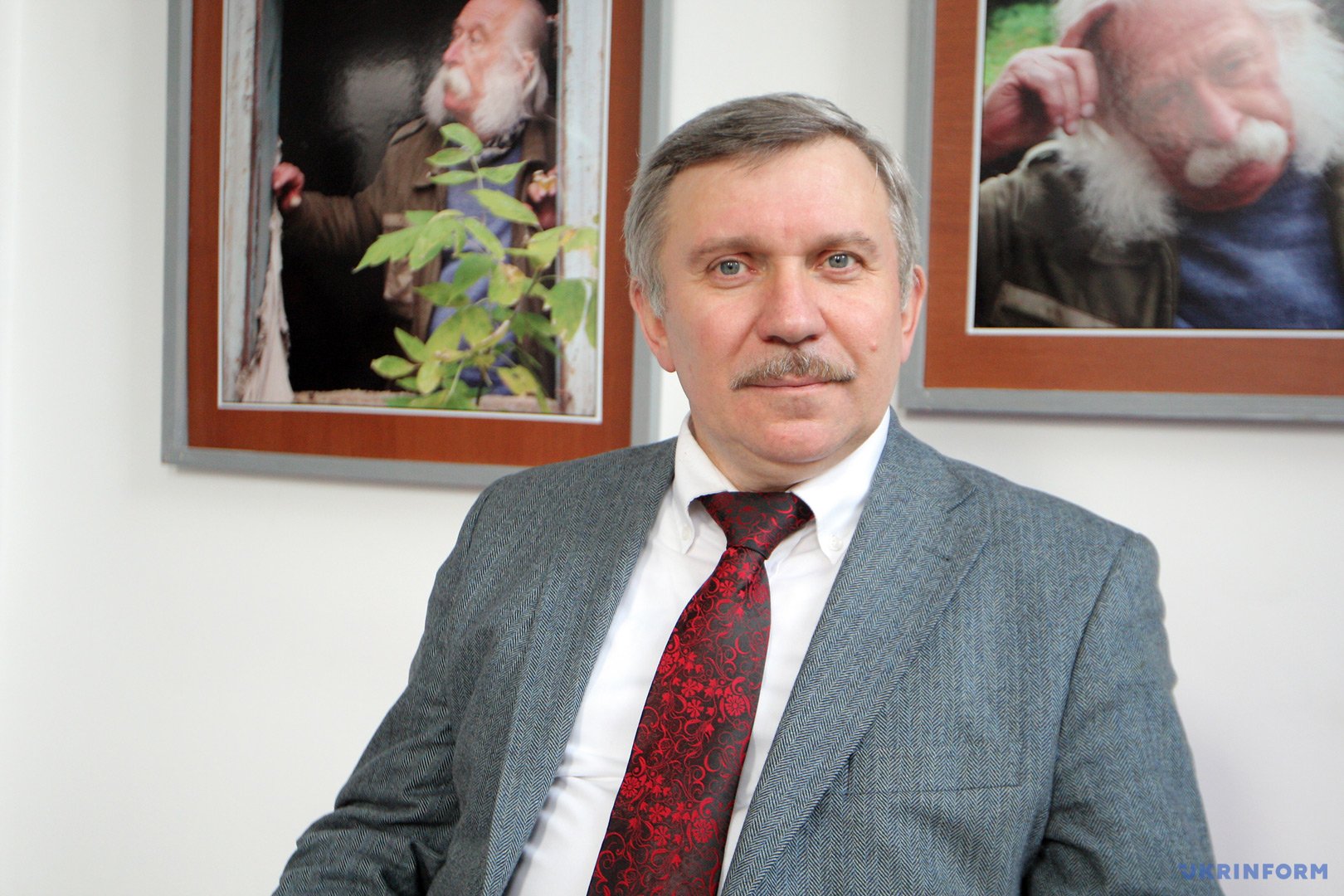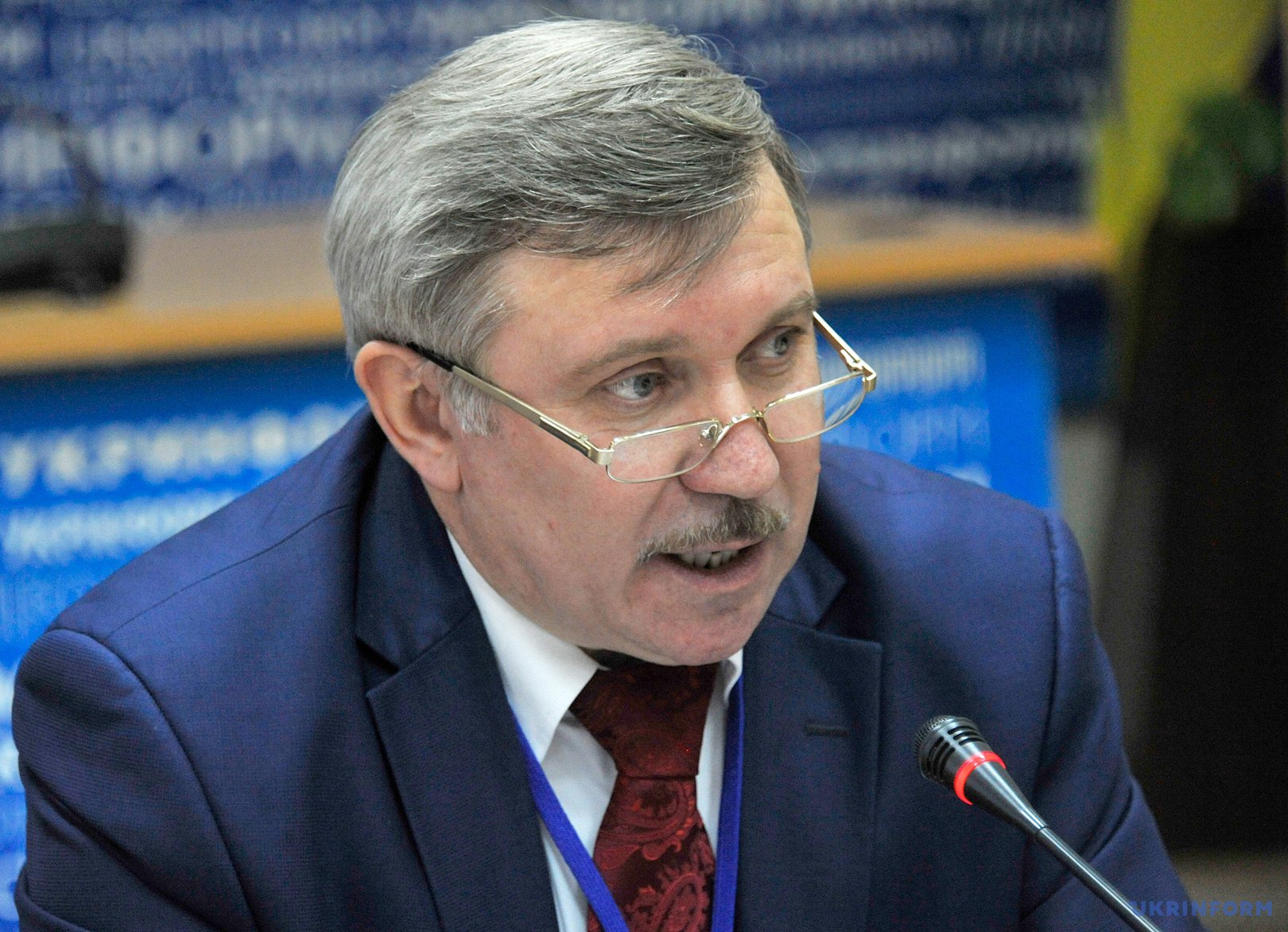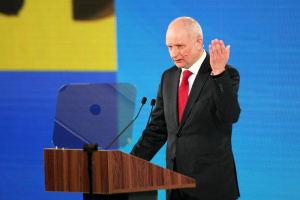The Stockholm Arbitration Tribunal has satisfied the claim of Naftogaz against Russia’s Gazprom under the Gas Sales Contract of 2009 on a “take or pay” claim.
We spoke about the court process, which lasted almost three years, with leading energy expert, President of the Centre for Global Studies Strategy XXI, Mykhailo Gonchar.
IT’S THE EASIEST OPTION TO BLAME EVERYTHING ON YULIA TYMOSHENKO
- Many mass media representatives begin the story about the Stockholm arbitration with telling about the signing of gas contract of 2009. You then in your speech told that the contract could lead to the bondage of Ukraine.
- History does not know a conventional method. Yulia Tymoshenko shares responsibility, but anyone from then politics being in her place would have done the same.
Then President Yushchenko could have prevented the signing of this contract in the conditions of Russia’s artificially created gas crisis. But he continued resting somewhere in the Carpathian Mountains, when the crisis gathered pace and when Gazprom stopped gas supplies not only in Ukraine, but in Europe as well. I remember when [then Head of Naftogaz] Oleh Dubina gathered a narrow circle of experts to analyze the situation and set a sequence of actions, while higher state leadership was inactive. Later, then Secretary of the National Security and Defense Council Raisa Bohatyriova also gathered experts. But the "ruling upper circle" didn’t need that.
The situation was critical as the state machine almost didn’t function. While the higher state government continued to celebrate, another one - the prime minister - behind the scenes was involved in resolving the crisis in their political interests with setting sights on the 2010 presidential elections. Another important point is that the EU put pressure on Kyiv and required immediate resumption of gas transit. It was strange that the European Commission didn’t want to find out the nature of the crisis and make appropriate conclusions, and punish those guilty. By the way, everything takes place in a very similar way in the case with Russian aggression against Ukraine, which is called in the EU as "a conflict in and around Ukraine."

Going back to 2009, a period of time that preceded the signing of the contract. Yulia Tymoshenko agreed on signing this contract by Naftogaz, although perhaps she understood the shortcomings of this contract. Also, it was important for her by all means to remove a nontransparent, parasitic and corrupt scheme of RosUkrEnergo, which is often overlooked.
The thirst for power at any price, the fight among oligarchs, Russian games with Ukrainian politicians, and the pressure of European "hybrid friends" - all these factors contributed to the singing of the problematic gas contract on January 19, 2009.
We remember that in the midst of Russia's gas aggression in January 2009, then [and current] Slovak Prime Minister Robert Fico came to us following his visit to Moscow and talks with Miller. He had the absolutely Russian interpretation of events, according to which, Ukraine was guilty of everything.
So, it’s the easiest option to blame everything on Yulia. The lesson of 2009: you cannot sign the contract under pressure and during the crisis, which is artificially created so that there simply can be no choice. The draft contract should have passed through all levels of expert examination, despite all the cries from Brussels, Moscow and other capitals.
- What is the main victory of this many-volumed case?
- This case is multidimensional. Gazprom expected Naftogaz to appeal to arbitration as such possibility was envisaged in the contract, and sought to pre-empt the lawsuit. The main complaint was that Naftogaz did not stick to the contractual obligation "take or pay". Gazprom’s logic suggested that Naftogaz should have certainly paid for non-extracted gas volumes. Moreover, then Russia had already occupied Crimea and started invasion in eastern Ukraine. The Kremlin leadership thought that a $31.7 billion lawsuit had to assert a powerful psychological impact on post-Maidan Ukrainian authorities in conjunction with a gas blockade, which failed in June 2014. Russia expected cancellation of the fine in exchange for Crimea. They thought the the Arbitration Institute of the Stockholm Chamber of Commerce would oblige Naftogaz to pay a huge sum – almost 1/3 of Ukraine's GDP, which was unrealistic at that time. Then, Russia would offer to cancel a fine in exchange for Ukraine’s recognition of the Russian status of Crimea.
Naftogaz responded with a counter-lawsuit, which was based on improper application of the "take or pay" principle and the non-market price formula in the contract, which made Naftogaz constantly overpay to Gazprom on gas imports. The Stockholm arbitration analyzes not only the spirit and letter of the contract, it analyzes the contract for its compliance with the market realities. It also carefully studies the elements of discrimination in relations between the parties to the contract. I do not know what formulations will be in the arbitration ruling, but, in my opinion, we can say that the arbitration noticed a discriminatory approach in the "take or pay" principle combined with a simultaneous ban on gas re-export. In addition, the Gazprom formula price is not so univocal.
The decision of the arbitration indirectly shows one important point: Russia uses its gas not only as an export commodity, but as a mechanism for conversion of the goods-money relationship into the economic and political impact on countries in the contractual relations with Gazprom. Gas is a tool of Russia’s foreign policy.
GAZPROM PIPELINES ARE ‘TROJAN HORSE’ FOR EUROPE
- Could the ruling affect the infrastructure projects of Gazprom?
- I think it could. At first glance, the Naftogaz-Gazprom contract for the sale (as well as the transit contract, which is still under consideration) and the Nord Stream 2 project may seem to be the different planets. In fact, everything may turn out to be different. There is much controversy around this project. Gazprom and its supporters argue that this is just one of the business projects. However, the opponents claim it is politically and geopolitically motivated project which is economically meaningless. The Stockholm arbitration decision shows that Gazprom can manipulate. If the Nord Stream 2 project is implemented, and the second thread of the Turkish Stream is built through the Black Sea in Europe, then Gazprom will be able to manipulate the areas, volumes and prices for gas supplies to Europe.

Accordingly, Gazprom will be able to impose certain lucrative for itself contracts upon companies from various countries. These contracts could contain discriminatory approaches in any disguised form. Poland suggested creating the Energy Union for a reason. One of the cornerstones of the Union should have been a unified EU’s procurement policy towards gas purchase from external suppliers. And by the way, this suggestion was immediately destroyed when the idea started to be discussed within the European Union. The argument was that the European Union is not the Soviet Union and could not have centralized procurement. This idea, in fact, was eliminated by the pro-Gazprom lobby in Europe. And now the Stockholm arbitration indicates a high risk of costly Gazprom infrastructure projects, which may become a "Trojan horse" for Europe.
On the one hand, the European Commission understands that the Nord Stream 2 fundamentally contradicts the European energy legislation, the idea of the Energy Union. On the other hand, they cannot oppose as the German government and several European companies would point at the excess of mandate, saying this is a business project and they want it to be implemented. Therefore, the European Commission, under these circumstances, should decide that the projects such as Nord Stream 2 may not be currently on the agenda in Europe until Russia returns to the international legal framework – restores the territorial integrity of Ukraine and Georgia and withdraws troops from Moldova. Afterwards, it would be possible to consider major projects of the EU-Russia cooperation, including and Nord Stream 2.
In my opinion, the ruling of the Stockholm arbitration in this case, and later in the transit contract case, should encourage the European institutions to review their policy towards Gazprom and its projects. Of course, there would be many people in the EU who would argue that this episode of the Gazprom business practice is a special case, typical only of the post-Soviet are and should not be extrapolated to the relations of Gazprom with its European partners. So, there would be serious debates on this issue in the EU soon.
- Russia emphasizes that the ruling is transitional and that a price formula for Ukraine has not been calculated. Could this contract be considered as void?
- No, it could not. We should not think that the arbitration will issue any directive orders to the parties. The arbitration will just suggest that the parties should sit down and agree on certain conditions in the context of its decision. The arbitration will not offer a formula. The ruling is few hundred pages, which contain not just description of the situation, but the well grounded approaches of how, in the opinion of the arbitrators, the parties should review their contracts toward bringing them into line with market realities and non-discriminatory practices.
- So, we have to settle a price, right?
- Since November 25, 2015 we have not made purchases of Russian gas. Therefore, I believe that an agreement on prices for current procurement makes no sense. For us, the meaning of the arbitration decision is what price of made purchases was supposed to be. And so, the amount of overpayment should be determined.
- Can we say that the arbitration decision means the beginning of the end of Gazprom's monopoly in the gas market?
- Certainly. Rosneft's Head Igor Sechin, the bitter enemy of "Gazprom", will take advantage of this situation. For him, the Stockholm problem of "Gazprom" is a reason to inflict a crushing blow on it. Mr. Sechin was right when he criticized "Gazprom" during many years for the preservation of the export monopoly and did everything to eliminate it. According to him, "Gazprom" is totally ineffective, as it implements unnecessary projects of gas pipelines while there are optimal ways of transportation that can be successfully used.
- Is any prospect of victory in the lawsuit on increase of transit tariff?
- There is such a prospect. After all, "Gazprom" did not provided the volume of gas transit at the level of "at least 110 billion cubic meters" in any year, as set out in the contract. The volume of gas supplied for transit to the EU ranged at 60-75% of this figure. So I hope that a decision will be made in our favor.
- Can we say that a single European opinion in energy policy starts forming?
- No, we cannot say this. Rather on the contrary, there is a variety of opinions. Russian lobby in Europe has not disappeared.
- We have lived more than 550 days without Russian gas, but it doesn’t mean that it will be easy to live without it, we are still interested in such supplier.
- Of course, if we talk about the balanced system of gas imports. Although, there is no "Eurogazprom" on the part of Europe. More than three dozen companies supplied gas to Ukraine during the whole period of reverse gas supply, but we need the Eastern supplies for the European "hybrid friends" not to become impudent. And this can be not only supplies from "Gazprom". It wouldn't be such a bad idea if the European Commission after the Stockholm decisions insisted that the Russian side provided free access to pipeline capacity of "Gazprom" of independent gas producers and free transit of Central Asian gas through "Gazprom" pipelines to Europe through Ukraine. The best way is to perform a national program to increase gas production, reduce internal consumption to a level that we extract and depend neither on the East nor on the West. The best option is to put an end to gas imports, to invest into our economy and then we will have our own resource provision.
Lana Samokhvalova, Kyiv

